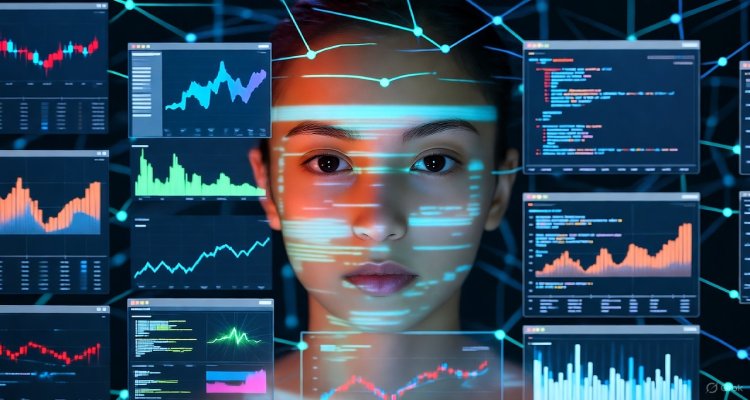The Lost Generation of People Who Never Existed Offline

A deep dive into the “lost generation” that has never lived offline—how digital-native lives are reshaping identity, relationships, and human experience.
Introduction: Living Without an Offline Past
When you ask a member of Gen Z where their first memories live, you don’t get “the park” or “the classroom.” You get “the feed.” For a growing number of people born after 2000, life has unfolded entirely inside the digital fabric — an existence where the real and the virtual blur into one continuous stream. They are the first to truly “never exist offline.”
Psychologists are calling them the virtual natives: a generation whose sense of self has emerged not in physical spaces, but in pixels, notifications, and algorithms.
Context & Background: From Digital Migration to Digital Birth
The internet was once a tool — a supplement to life. But around 2010, when smartphones became extensions of the hand and social media captured the heart, the balance shifted.
By 2020, nearly half of all human interactions for people under 30 happened across digital interfaces. That trend only deepened through the pandemic years, when lockdowns turned digital companionship into emotional lifelines. What began as convenience evolved into culture — a way of being.
A 2024 study by the Digital Anthropology Institute found that 73% of Gen Z participants experienced “offline anxiety” — discomfort when disconnected from the internet for more than six hours. The same study concluded that for many, identity validation now occurs primarily through digital platforms, not physical communities.
Main Developments: The Rise of the “Fully Digital Human”
The “lost generation” isn’t lost to society — they’re lost to the concept of physical belonging.
-
Digital birth: Many of these individuals had digital footprints before they learned to speak. Family posts, school platforms, facial recognition, and AI-curated memories created an identity timeline long before self-awareness.
-
Algorithmic adolescence: Platforms like TikTok, YouTube, and Threads became not just places of entertainment, but ecosystems of socialization, learning, and emotional regulation.
-
Virtual adulthood: Remote work, online dating, VR meetings, and digital self-employment now form the foundation of adult life for millions who rarely interact face-to-face.
Their world is vast — borderless, immediate, and viral. Yet it carries a bittersweet paradox: a global connection paired with personal disconnection.
Expert Insight: The Digital Identity Paradox
Dr. Lena Rodriguez, a digital psychologist at the University of Sydney, describes this phenomenon as “identity atomization.”
“We are witnessing the first human generation that constructs its sense of existence almost entirely through interfaces,” she says. “Their emotions, beliefs, and even morality evolve through algorithmic reinforcement rather than physical social structures.”
Sociologist Arjun Mehta adds another layer:
“Digital life doesn’t erase authenticity; it redefines it. The question isn’t whether online identity is real — it’s whether offline identity still matters.”
Meanwhile, online communities have become surrogate families. Reddit threads, fandom servers, and creator collectives offer belonging and recognition once reserved for physical friendships. Yet, the constant exposure to global comparison can trigger chronic self-doubt — a psychological side effect of growing up public.
Public Reaction: Between Nostalgia and Necessity
Those who remember pre-digital life often express nostalgia — for handwritten notes, spontaneous community, and privacy. But younger generations don’t perceive it as loss; to them, an “unposted” life feels invisible.
“I used to feel weird for wanting to post everything,” says 19-year-old streamer Kayla Ong. “Now it feels weird not to. If it’s not online, did it even happen?”
Her sentiment reflects an emotional dependency that transcends habit. The digital space is not an escape; it’s the default reality.
Impact & Implications: Redefining Humanity in the Tech Era
This transformation raises profound questions. What happens to empathy, attention, and authenticity when they are mediated through algorithms? Can offline culture survive in a world where connectivity is constant?
Economically, the “digital-first” mindset has accelerated industries — from influencer marketing to metaverse commerce. Politically, it redefines civic engagement: activism now happens primarily online. Emotionally, it reshapes intimacy, as dating apps and friendship AIs blur the line between human and machine bonding.
Yet, a quiet resistance is growing. Movements like “digital minimalism,” “reel detox,” and “slow content” point toward a yearning for boundaries — a reminder that humanity thrives in presence, not just persistence.
Conclusion: Rediscovering the Human Signal
The lost generation of people who never existed offline isn’t a warning — it’s a mirror. They reflect what humanity becomes when presence is digitized, and every thought has an audience.
The challenge ahead is not to undo their digital existence but to humanize it: to ensure that empathy, authenticity, and silence still have value in a world that never logs off.
In the end, the story of this generation forces a collective question — not “how did they lose the offline world,” but “can we rediscover what it means to exist beyond the screen?”
Disclaimer:This article is an original, research-based work intended for informational and educational purposes only. It does not represent psychological or sociological advice.










